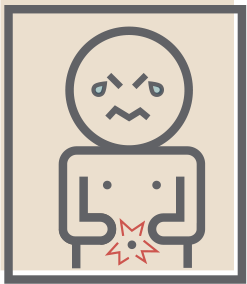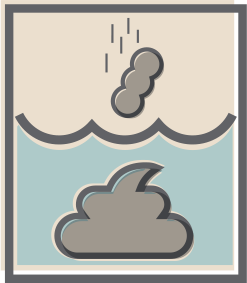Hepatitis B
Also known as - Hep B and HBV
Quick
Facts

20,000 Philly residents are believed to have hepatitis B.
Most Philadelphians with hep B are not aware they have it.
Hep B can be prevented with a 3-shot vaccine series.
Persons or families who have immigrated from Asia or Africa are more likely to have hepatitis B.
To prevent death and serious health complications from hepatitis B, Philadelphians should get tested and treated.
So, what can you tell me about hepatitis B?
Hepatitis B
Hepatitis B is a virus that infects the liver. It spreads when the blood, semen, or vaginal fluids of an infected person come into contact with a healthy person’s fluids. People with hepatitis B do not always have symptoms, so you can live with hep B for a long time and never know it. Understanding your risk and getting tested is important so you can find out if you have hepatitis B before it does serious damage to your liver.
The info below will help you figure out if you might have been exposed to hepatitis B. If any of the risk factors sound familiar, tell your medical provider that you would like to be tested. If you test positive, there are medications that can control the virus and slow down damage to the liver. If you test negative, ask your clinician about getting vaccinated for hepatitis B – three shots of the vaccine will protect you from getting infected!
hep b infections can be either acute or chronic
Acute
A mild illness that happens within the first 6 months after infection
Can develop into a chronic hepatitis b infection
If you recover from an acute hep B infection, you are immune and cannot be infected again
Babies who are exposed to the virus are likely to develop a chronic infection
90% of adults will be cured of the infection without medical help
Chronic
A long term infection that remains in the body for a lifetime
Up to 1.4 million people in the U.S. might be infected with chronic hepatitis B
Most people who have chronic hepatitis B are not aware they are infected
10% of people exposed to hep B as adults will develop a chronic infection
Can result in long term health issues including cancer and death
HEPATITIS B can be prevented with a vaccine
How is hepatitis B spread?
Body Fluids

Can You Guess How
Hepatitis B Is Spread?
SEX
Without a doubt.
CHILD BIRTH
Absolutely.
DRUG EQUIPMENT
Yes.
TOILETRIES
Yup.
SEAFOOD
Nope!
FRENCH KISSING
Nah.
BREAST FEEDING
Keep on feeding!
TATTOOS AND PIERCINGS
Definitely.
DRY KISSING
No Way!
COUGHING AND SNEEZING
Safe!
WORK RELATED EXPOSURE
Yes.
SHARING CUPS, FORKS, SPOONS, ETC.
Negative.
Do I have hepatitis B?

You might have Hep B if you...
- Have had unprotected sex with multiple partners
- Were born to a mother who has hepatitis B
- Have shared needles, syringes, or any other items needed to inject drugs
- Have immigrated, or are the child of an immigrant, from a continent with a large hep B infected population such as Asia or Africa (Check out a map from CDC)
- Have received a blood transfer or an organ transplant before 1992
- Were tattooed or body pierced at a tattoo party, or other unlicensed venues
- Have been exposed to blood at your place of work
- Have shared razors or toothbrushes with someone who may have hepatitis B
symptoms are a bit tricky
Symptoms Include:

the skin or eyes






What If I Think I Have Hepatitis B?
See A Doctor!
If you think you have been exposed to hepatitis B, do not wait for symptoms to get tested! If you wait until symptoms show up to get tested, your liver may already be damaged beyond repair. Hepatitis is known as a silent killer because it can live in your body for years without you knowing it. So if you think you have been exposed to hepatitis B, tell your medical provider you would like to be tested. If you test positive, there are medications that can control the virus. If you test negative, ask your clinician about getting vaccinated for hepatitis B – three shots of the vaccine will protect you from getting infected!
Want to find care or assistance?
Want to get tested for hepatitis? Lack insurance and need assistance? Are you a doctor with a Spanish speaking client who needs translation? No matter your needs, we can help! Check out our Support + Care page to find a place in your community that can give you the healthcare support you deserve.

Where Can I Find More Hep B Info?
Know Hepatitis B is a Centers for Disease Control campaign that seeks to increase awareness about hep B and encourage people who may be chronically infected to get tested so they can take care of themselves and protect their families.
The Hepatitis B Foundation is a national non-profit organization dedicated to finding a cure and improving the quality of life of those affected by hepatitis B worldwide, through research, education, and patient advocacy.
Hep B Advocate is a resource for accurate, timely and cutting-edge information on HBV treatment and vaccines.
Hep B United Philadelphia is a city-wide education campaign launched to increase testing and vaccination in the fight against hepatitis B and liver cancer.
